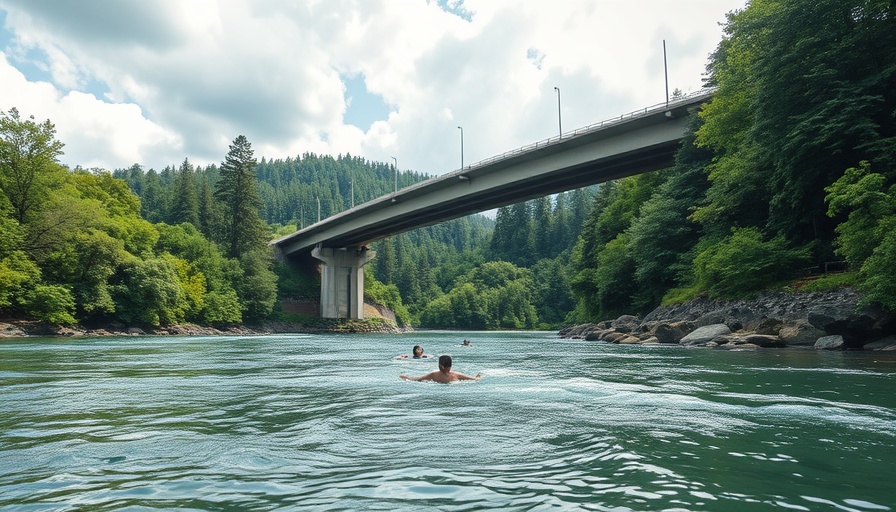
A New Era for Alabama's Water Safety Standards
In a significant victory for environmental advocates, a coalition of seven conservation organizations has successfully petitioned the Alabama Environmental Management Commission (AEMC) to revamp the state’s water toxicity standards. This decision marks a turning point for public health and environmental safety in Alabama, as the state grapples with outdated toxic pollutant regulations that have not been revised for over a decade.
Why the Update Matters
The petition, which was filed in April, highlighted critical concerns regarding the existing standards, arguing they failed to adequately protect public health, especially concerning the consumption of fish and water. In recent years, scientific advancements have shown that some pollutants are considerably more toxic than previously understood, underscoring the urgency of updating these regulations.
David Ludder, the attorney for the petitioners, emphasized that the Alabama Department of Environmental Management (ADEM) had not updated its toxicity values used for evaluating surface water quality since 2015, despite updated guidelines from the U.S. Environmental Protection Agency (EPA).
The Pollutants in Question
The toxic pollutants targeted in the petition include a concerning list of substances: cyanide, arsenic, ethylbenzene, toluene, and several more. These chemicals pose significant health risks, and the petition argues that current standards do not reflect the latest scientific findings on their toxicity.
The petition’s authors articulated that while protecting Alabama’s aquatic life is essential, the health of its residents must take precedence. The call for action symbolizes a growing recognition among citizens and activists that environmental regulations should evolve in line with scientific progress.
Current State of Water Pollution in Alabama
Recent pollution incidents, particularly along the Tennessee River, have spotlighted the importance of stringent regulatory measures. Picturesque areas like the Little River Canyon Falls Park and other nature reserves are at risk due to industrial pollution. Despite ADEM's previously stated commitment to a review process, a noticeable lag in updating standards has raised alarms among local communities and environmentalists alike.
Commissioner Lanier Brown acknowledges the necessity of adhering to EPA standards, reinforcing that Alabama’s rules should reflect solid scientific bases. In light of advocacy efforts, AEMC has accepted the petition, leading to lower permissible limits for several harmful pollutants.
The Broader Context of Environmental Advocacy
This decision aligns with the global movement towards improved environmental practices and heightened awareness around climate change and pollution. For boutique hospitality professionals and eco-conscious business owners, understanding the implications of water safety standards is crucial. Today's travelers increasingly prioritize sustainable practices, and having clean, safe water can be a decisive factor in attracting eco-minded guests.
Connecting the Dots: The Impact on the Hospitality Industry
As the hospitality industry leans more towards sustainability, this shift in Alabama’s water safety standards offers valuable insights. Unlike many big agricultural businesses that rely heavily on sterile plastics and chemicals, smaller eco-lodges can capitalize on their commitment to preserving natural ecosystems—something that appeals to today’s environment-conscious tourists.
Furthermore, as discussions about microplastics and their impact on ecological systems and health surface, boutique accommodations that actively promote clean water initiatives can set themselves apart in a crowded marketplace. Engaging in chaos gardening within the hospitality context can also provide tangible experiences for guests, deepening their connection to nature.
Taking Action for a Sustainable Future
As Alabama prepares to propose the updated water standards later this year, it is essential for boutique hospitality professionals to stay informed and recognize how these regulations could benefit their businesses while also playing a crucial role in safeguarding the environment. By embracing environmentally friendly practices, industry leaders can foster a more sustainable tourism model.
This realization amplifies the message that profitable and eco-friendly practices can—and must—coexist. Join the growing number of hoteliers who prioritize ecological health in their operational strategies today!
 Add Row
Add Row  Add
Add 




Write A Comment